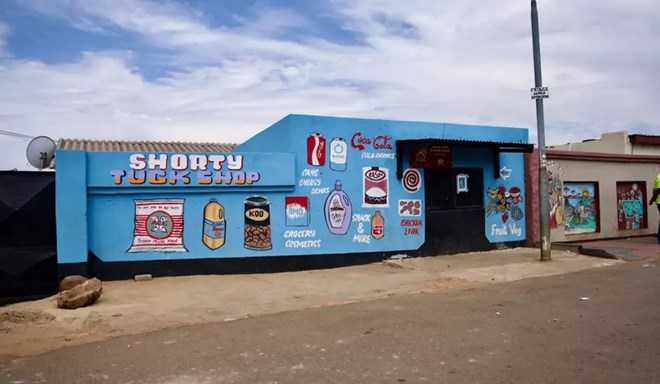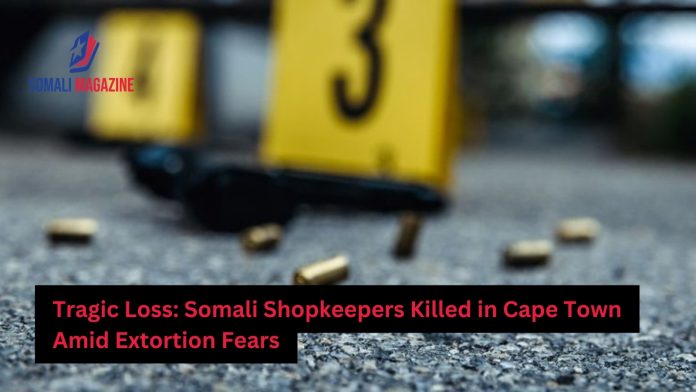Facebook Twitter (X) Instagram Somali Magazine - People's Magazine
Two Somali shopkeepers were fatally shot in Cape Town’s Wallacedene neighborhood, sparking concerns over rising violence against foreign-owned businesses. The attack, which occurred on April 24, 2025, is suspected to be linked to extortion demands frequently targeting Somali traders in South Africa.
Authorities reported that four armed men approached the shop around 9:45 p.m. and opened fire before fleeing the scene. One victim died instantly, while the second succumbed to injuries at a nearby hospital. Police spokesperson Warrant Officer Joseph Swartbooi confirmed that investigators are treating the case as a double homicide with possible ties to criminal extortion networks. “Initial reports suggest this may be linked to extortion,” Swartbooi stated. “We are investigating two counts of murder. The suspects remain at large.”
The shooting took place on Kalako Street in Phase 7, a densely populated area where Somali-owned spaza shops are common. Residents described hearing gunfire but hesitated to respond immediately out of fear. “When we finally stepped outside, both boys were lying in a pool of blood,” said one witness. “One was still moving, but the other had already died. They shot him in the head.”

The attack is part of a broader pattern of violence against Somali traders in Cape Town, where criminal gangs often demand protection fees from shop owners. Somali business owners have long been vulnerable to such extortion, with many forced to pay to avoid further threats or violence.
The Somali community in South Africa has endured a significant rise in xenophobic attacks, with many targeted due to their perceived economic competition. Similar incidents have occurred in areas like Khayelitsha and Philippi, where Somali shopkeepers have been killed in suspected extortion-related shootings.
Residents who knew the victims described them as hardworking and polite. “These boys were kind and polite,” said another local. “They were too young to die like this.”
In response to repeated attacks, Somali shopkeepers have initiated neighborhood watch programs to protect their businesses and families. However, many feel these efforts are insufficient, as criminal extortion continues to fuel violence. A local community leader, who declined to be named due to safety concerns, suggested the attack may have been a warning related to protection fees.
South African authorities have pledged to intensify investigations into extortion networks targeting foreign-owned businesses. However, Somali traders argue that law enforcement has failed to provide adequate protection, leaving them vulnerable to criminal gangs.
The Somali Association of South Africa has called for urgent government intervention to address the escalating violence. “We need stronger action against these criminal networks,” said a spokesperson. “Somali traders contribute to the economy and deserve the same protection as any other business owners.”
As Cape Town grapples with rising crime, the killings serve as a grim reminder of the dangers faced by Somali entrepreneurs. The focus now shifts to whether authorities can dismantle extortion rings and ensure justice for the victims.

